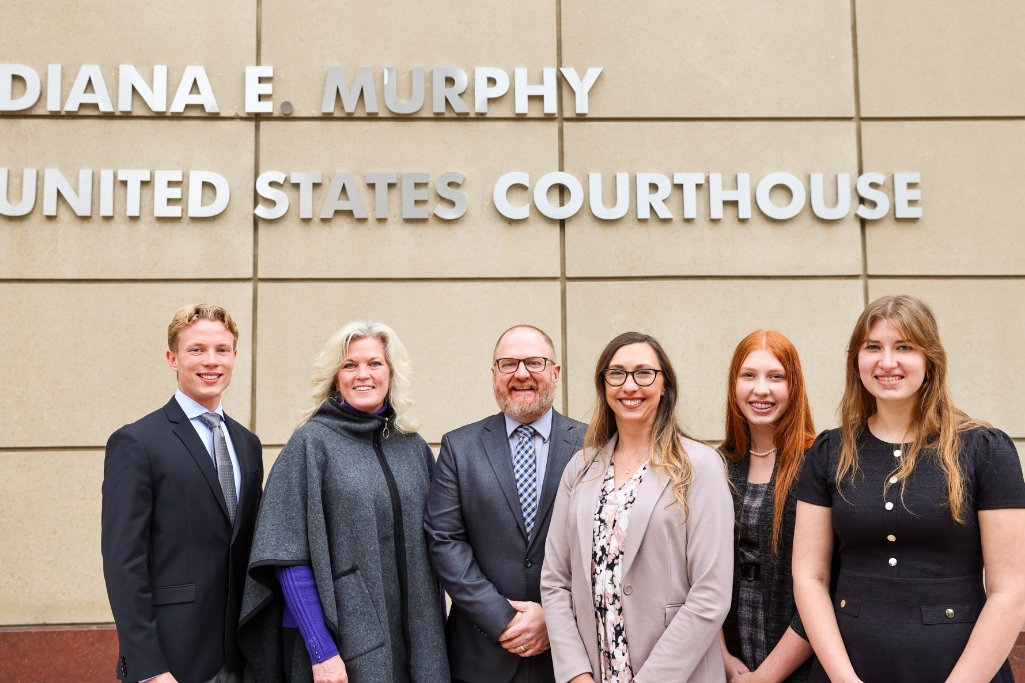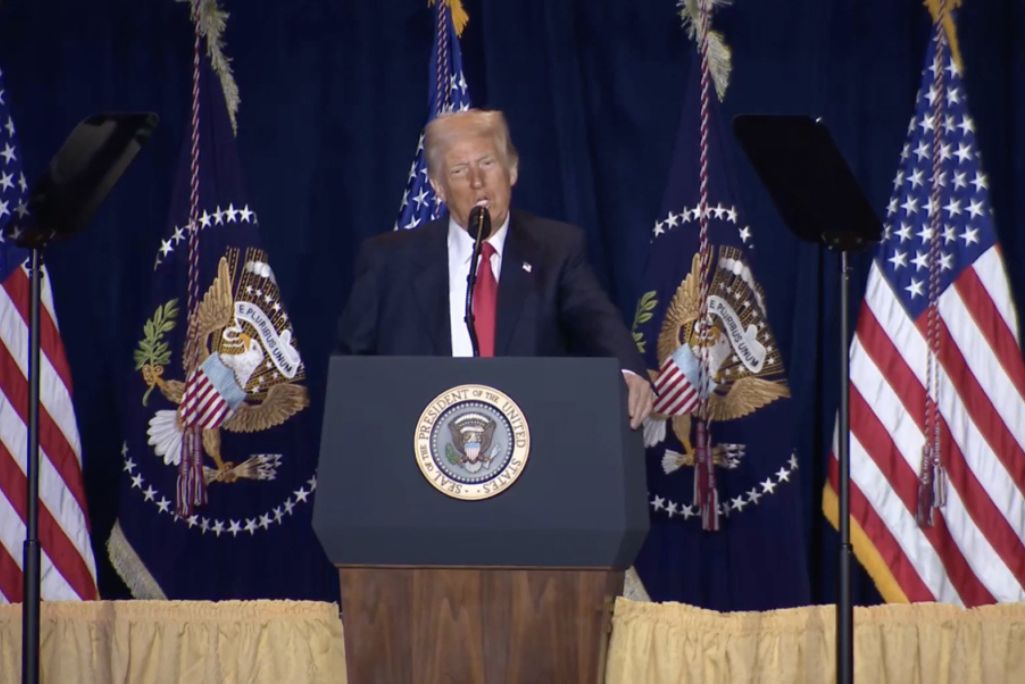
Loe-v.-Jett plaintiffs in 2024.
MINNEAPOLIS (BP) — A Minnesota law that banned certain Christian colleges from a program that enrolls high-schoolers in tuition-free college credit courses is unconstitutional, a federal judge has ruled.
Minnesota violated the religious freedom of certain schools when it amended its 40-year-old Post Secondary Enrollment Options (PSEO) program in 2023 to exclude schools that require students to sign a statement of faith, U.S. District Judge Nancy Brasel ruled late Aug. 23. Additionally, Brasel threw out a nondiscrimination requirement that prohibited participating schools from basing admission on the basis of gender, sexual orientation or religious beliefs. The nondiscrimination requirement was aimed at protecting the LGBTQ community, the state has said.
The ruling was a victory for conservative Christian schools Crown College in St. Bonifacius and the University of Northwestern in Roseville, along with two private Christian families that sued the state in 2023 over the new restrictions.
“The faith statement ban is unconstitutional under the Free Exercise Clause of the United States Constitution and the Freedom of Conscience Clause of the Minnesota Constitution,” Brasel wrote, the University of Northwestern at St. Paul reported. “The faith statement ban is inseverable from the nondiscrimination requirement, and so the amendment must be stricken in its entirety. As for MDE’s (the Minnesota Department of Education) counterclaims, MDE lacks standing to assert its constitutional counterclaims, and its statutory counterclaim fails on the merits under the MHRA (Minnesota Human Rights Act).”
The plaintiffs’ legal representative Becket welcomed the ruling.
“Minnesota tried to cut off educational opportunities to thousands of high schoolers simply for their faith. That’s not just unlawful — it’s shameful,” CNN quoted Becket senior counsel Diana Thomson. “This ruling is a win for families who won’t be strong-armed into abandoning their beliefs and a sharp warning to politicians who target them.”
Brasel said she based her ruling on Supreme Court precedent which holds that, although states are not required to supplement the cost of private education, any supplements cannot exclude schools based on religion.
The plaintiffs in the original case of Loe v. Walz (continuing as Loe v. Jett) had previously participated in the program. But the new rule banned Crown College and the University of Northwestern at St. Paul from PSEO because they required on-campus students, including PSEO students, to sign statements of faith. When the lawsuit was filed, plaintiffs Mark and Melinda Loe had 16-year-old and 13-year-old children in line to participate in the program. Plaintiff Dawn Erickson had a 16-year-old child.
“We raise our children to put their faith at the center of everything they do,” the Loes said in 2024, accusing Minnesota of depriving their children and others from “the opportunity to get a head start on college at schools that embrace their faith.”
Becket had argued the state’s new rules required the schools to give up their religious identity to continue to participate in PSEO. Becket also accused Minnesota of violating the schools’ freedom of speech and of discriminating against the schools based on the schools’ religion.
(EDITOR’S NOTE — Diana Chandler is Baptist Press’ senior writer.)


